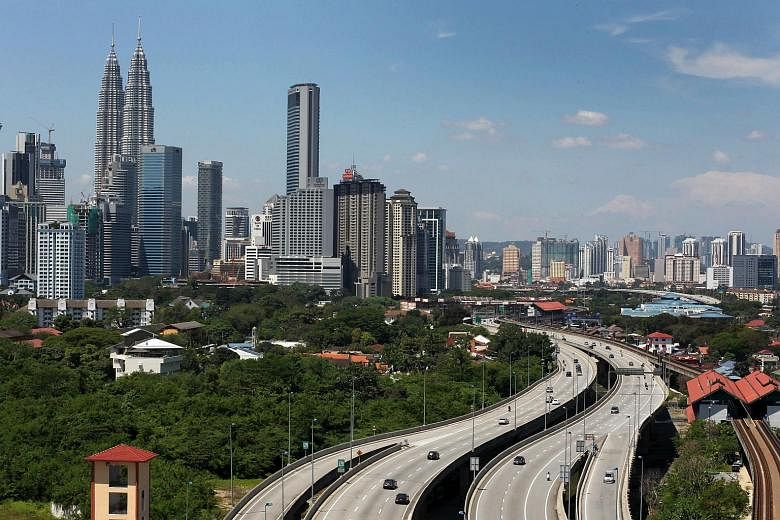In its editorial on August 14, 2015, the Sin Chew Daily urges the Malaysian government to address issues within the country that are impacting the economy.
China allowed its currency to depreciate by about 2 per cent without prior warnings in a bid to stimulate its economy, marking the steepest single-day plunge of the renminbi since the People's Bank of China introduced the currency exchange reform mechanism in 2005.
The latest move sent jitters across much of Asia Pacific with key financial markets suffering heavy blows, including Malaysia. Coupled with the exodus of foreign funds, the ringgit plummeted below the psychologically important 4.00 level to a new 17-year low of 4.008 against the greenback on Tuesday evening.
Many Malaysians are worried once this barrier is breached, the local unit may dive out of control. However, the government appears to be flushing with confidence vis-à-vis a severe confidence drought among the people in the street.
It is not hard to see that the current situation could be attributed to domestic and external economic factors, including the imminent and widely anticipated interest rate hike by the Federal Reserve, which if eventually comes true, will put further pressure on the currencies of emerging economies, including our ringgit.
Secondly, Malaysia is a commodity exporter, and given the fact that the prices of palm oil and other commodities are on steady decline, the local currency is undeniably under a lot of pressure.
Thirdly, local exporters and importers tend to keep their earnings in foreign currencies and not convert them to ringgit, indirectly pulling down the exchange rate of ringgit.
Fourthly, the local political turmoil stemming from the 1MDB scandal that dampens market sentiment and erodes the confidence of foreign investors. The recently introduced GST is yet another factor that has significantly dampened market and consumer sentiment.
External factors are what beyond our own control. As such we should tackle our economic problem from the domestic factors, introducing appropriate policies to enhance public confidence while lifting the market.
That said, what has the government done so far?
At a time when the ringgit suffers tremendously, there have been talks that Bank Negara might act to defend the local currency, or even reintroduce capital control and pegging mechanism to stabilize the ringgit. However, with the market not yet at a stage that warrants such a drastic move, it is advisable for the central bank to adopt a softer role, allowing the money market to operate freely without much intervention lest we thin down our foreign reserves and affect investment confidence.
Those familiar with the country's economic conditions should be aware that the ringgit has tumbled some 19.7 per cent over a 12-month period to a still manageable level.
As a matter of fact, the currencies of many countries, in particular developed economies, have been falling even more steeply than ours. Bear in mind that the local currency dived as much as 50 per cent against the dollar within half a year during the 1997/98 regional financial crisis, when the country was suffering from both fiscal and trade deficits.
Such a situation does not take place today. Our financial system is still relatively solid and external trade still robust. Although we now have a significantly reduced foreign reserves of US$96.7 billion, it is still sufficient to meet the fundamental needs of the country. But again why Malaysians are still lacking in confidence?
I think this has something to do with the public's perception of the government. First and foremost, all the controversies arising from the current political stalemate should be put to an end so that the country can be back on the track of growth again.

